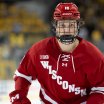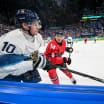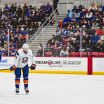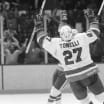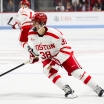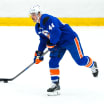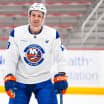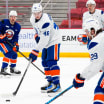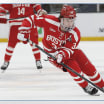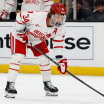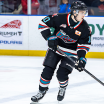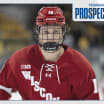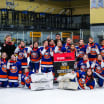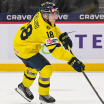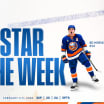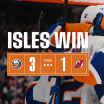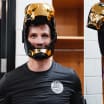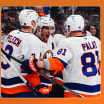"We needed a sniper; somebody along the lines of Guy Lafleur"
-- Bill Torrey, on the Islanders priority before the 1977 Draft
The Islanders boss specifically wanted Mike Bossy, who had broken all manner of scoring records for Laval in the Quebec Major Junior Hockey League.
But Bow Tie Bill wasn't going to get him; or so it seemed. Not with the 15th pick. Not with a half-dozen other general managers in search of a right wing sniper.
Maven's Memories: How Mike Bossy Fell To The Islanders
Stan Fischler recounts how Mike Bossy fell to the Islanders in the 1977 draft
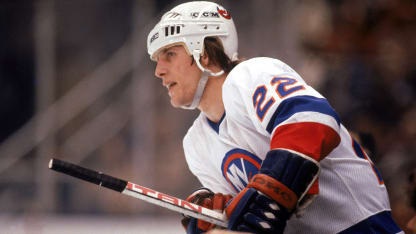
© B Bennett/Getty Images
By
Stan Fischler
Special to NHL.com
"It was hard to figure Mike would be passed 14 times," said coach Al Arbour
A goal machine, whose shot would have caused Lafleur to blush, Bossy had averaged 77 red lights a year in junior.
Heck, this guy should have gone first in that Draft; at worst second.
Keeping his cards close to his vest, Torrey wouldn't let on to his rival general managers that he actually had targeted Bossy, and had scouted him for a year. Bill did, quietly, try to move up a few rungs on the Draft ladder, but none of Bill's rivals were willing to make a deal.
"We didn't want to tip our hand that we were anxious to get a particular player," said Torrey.
Another source of hope for the Islanders was that opposing general managers would focus on Bossy's imagined "debits."
Was he too fragile? Was he simply a scorer with no defense? Was he too squeaky-clean? Bossy already had gone public and had denounced the goons and some of the tomfoolery of the 1970s.
"I felt good about the way I played hockey and always thought that it may not be the way they wanted me to play," Mike opined. "But it was the way I was going to play.
"Some scouts said I wasn't tough enough to play in the NHL. That sounded crazy to me, but I guess a lot of teams bought into that line of thinking. They were labeling me a one-way player but I knew I could adjust."
Harry Saraceno, one of Torrey's top scouts, loved the way Bossy scored goals for Laval, but that wasn't a unanimous opinion among the high command. Other Isles birddogs pointed out that they felt Mike couldn't even spell defense let alone master the art or back checking.
The issue of Bossy's offensive assets weighed against his defensive liabilities was presented to the head coach and he shot back with the answer:
"You get him," Arbour told Torrey, "and I'll teach him defense."
But how do you get him with 14 teams standing in the queue ahead of the Islanders?
Torrey knew them by heart: 1. Detroit; 2. Colorado; 3. Washington; 4. Vancouver; 5. Cleveland; 6. Chicago; 7. Minnesota, 8 Rangers; 9. St.Louis; 10. Canadiens; 11. Toronto; 12. Toronto; 13. Rangers; 14. Buffalo.
There some attractive potential picks who might go ahead of Bossy. Robert Picard was a first-class defenseman on the Montreal Junior Canadiens who was getting a lot of attention. Among the forwards, Jere Gillis, a Sherbrooke left wing and Lucien DeBlois, a right wing on Sorel were rated by some scouts ahead of Bossy.
And that was only in the Quebec League. On the Ontario side there were solid forwards such as Dale McCourt (St. Catherines), Mike Crombeen, (Kingston), and Scott Campbell (London.) The best of the Westerners was a hulking New Westminster defenseman named Barry Beck.
Complicating matters was the fact that the World Hockey Association still was operating and offering some awfully big contracts to young players but Bossy's goal was the NHL and that was that. Mike's agent, Pierre Lacroix, understood that and seconded the motion; no WHA.
The tension in the Bossy camp mounted right up until draft day when Mike, Lacroix and a friend, Denis Gauthier gathered in Gauthier's office before the draft began at 9 a.m. In those days it was a relatively low-key affair -- done by telephone -- nothing like the massive arena-filled events it is today.
Meanwhile, excitement was no less intense at the Islanders offices where Arbour and Saraceno were getting phone messages, one pick after another; hoping against hope that it would not be Bossy.
The first seven picks were made and none were for Bossy.
Detroit took Dale McCourt, Colorado got Barry Beck while Washington took Robert Picard and Vancouver followed with Jere Gillis.
When it came to the fifth pick tension mounted even more. It was 9:28 a.m. and representative of the Cleveland Barons was on the phone to Lacroix. The Barons wanted to know how much it would take to sign Bossy.
"We want $100,000 to sign and $100,000 a year for three years," snapped Lacroix, hoping for a negative response. "That's $400,000 for three years."
Thanks, but no thanks was the reply and Cleveland opted for Mike Crombeen. Then Chicago opted for Doug Wilson while Minnesota selected Brad Maxwell.
Meanwhile Arbour and Saraceno were sweating it out in the Isles offices because the Rangers were picking next (eighth selection) and again at 13. The last thing they wanted was for the Blueshirts to nab Bossy.
Arbour: "Every time a team didn't take Bossy, Harry would get more excited. Still, never in our wildest dreams did we think we'd get him."
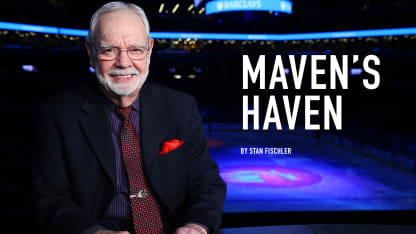
RELATED: MORE STORIES FROM STAN FISCHLER
Ah, but the Blueshirts obliged by taking Lucien DeBlois. St.Louis followed with Scott Campbell and Montreal plucked Mark Napier.
"Toronto had picks 11 and 12," Bossy remembered, "but we weren't surprised that they ignored me twice. The Leafs were afraid I might hold out for too much money and jump to Quebec of the WHA."
The Maple Leafs took a pair from the Marlboros Junior team, right wing John Anderson and defenseman Trevor Johansen.
Now, with the 13th pick the Rangers had a chance to trump their Nassau rivals. And, yes, they did opt for a right wing, but it was Ron Duguay.
Fourteen up, 14th down; only one more pick remained to torment the Islanders camp. It belonged to the Buffalo Sabres and, remarkably, the team from Western New York admittedly wanted a right wing and a right wing was the player they picked.
Only his name wasn't Bossy, it was Ric Selling. At last, it was Bill Torrey's move and instead of immediately calling for Mike Bossy, the Isles boss called a time-out. How come?
That's what Arbour was wondering. "Meanwhile," said the coach, "Harry almost had a coronary."
There was a method to Torrey's time-out. Other staffers -- Jin Devellano, Harry Boyd and Tex Ehman still had to be consulted before Bow Tie Bill would make his pick known.
As much as Bossy had his promoters within the high command there remained an attractive dark horse. His name was Dwight Foster and he boasted attributes that Bossy never had. For one thing he was big -- the rugged-kind -- and defensive minded. Plus, he was the leading scorer (143 points) in the highly-competitive Ontario Hockey Association.
Looking backward in his autobiography, "Boss -- The Mike Bossy Story," with Barry Meisel, Mike noted: "Foster was a typical gritty, Islander-type forward. I was not."
Bow Tie Bill ended his time-out and relieved the tension: "I'm picking Michael Bossy."
Torrey: "There were questions about Mike's willingness to work hard and whether he would be able to take the pounding he would get in the NHL."
Bossy stood up to be counted: "I can be a better player with the Islanders than I was in Junior."
To put it very mildly, he was right!
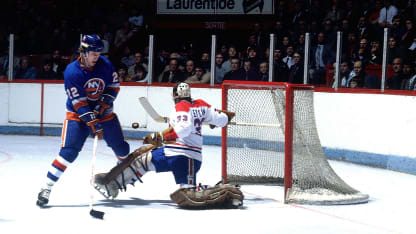
© Denis Brodeur/Getty Images
POSTSCRIPT: While Bill Torrey's snaring of Mike Bossy is one of the best Islanders good news stories, there was yet another terrific draft pick on that same June morning in 1977. This rarely is told but Bowtie Bill scored big a second time in the Draft.
Positioned to pick again at the 33d position, Torrey selected Toronto native John Tonelli who -- to this day -- ranks among the best second-line players in NHL history. A four-time Cup-winner, Tonelli played his first full year in Nassau during the 1978-79 season.
LISTS: FIVE REASONS WHY MIKE BOSSY WOUND UP WITH THE ISLANDERS
1. He wanted no part of the World Hockey Association which would only last for a couple more years.
2. The Cleveland Barons financial situation was shaky; which was why the Bossy camp demanded a contract that the Barons could not afford.
3. Teams seeking right wings were turned off by the "One-way Player" label many scouts placed on Mike.
4. Other clubs couldn't believe that Bossy could be taught defense. He could. And did.
5. Mike was better than Dwight Foster. (So was John Tonelli.)

